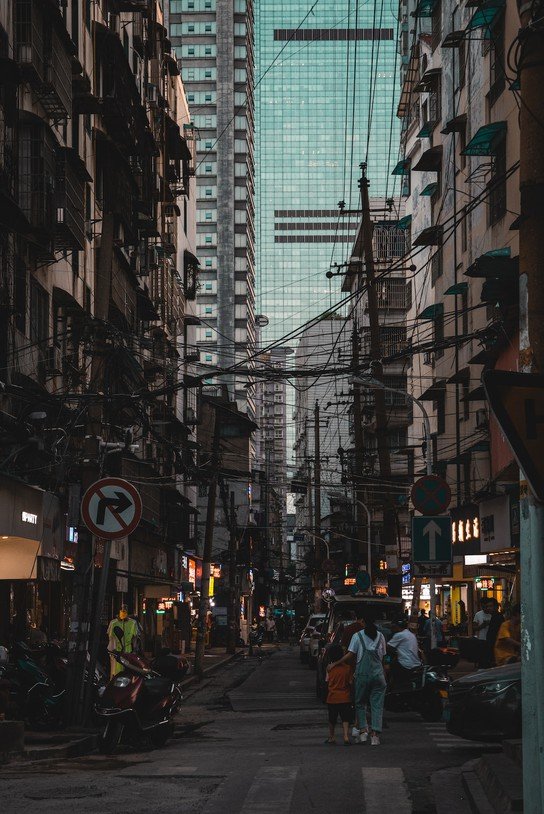The Rich Tradition of Chinese Opera and Theater: A Window into China's Cultural Heritage
Category : Chinese Culture | Sub Category : Chinese Opera and Theater Posted on 2023-07-07 21:24:53

The Rich Tradition of Chinese Opera and Theater: A Window into China's Cultural Heritage
Introduction:
Chinese opera and theater have entertained audiences for hundreds of years, offering a unique and colorful glimpse into the cultural heritage of China. Chinese opera is a form of art that showcases the nation's rich history, traditions and values. In this post, we will explore the fascinating world of Chinese opera and theater, highlighting its significance and historical development.
1 The history and origins.
Chinese opera has a long and vibrant history. The Tang Dynasty ( ) was where it evolved from earlier folk dance and music traditions. Chinese opera was a form of performance art that incorporated elements of dance, music, acrobatics, martial arts and elaborate costumes.
2 Regional styles
China's vast geographical expanse has given rise to different regional styles of opera. The styles that are most prominent are Peking Opera, Cantonese Opera, and Kunqu Opera. Each style has its own unique singing techniques, musical instruments, costumes, makeup and story telling conventions.
3 Theatrical techniques are used.
Chinese opera is known for its exaggerated gestures and facial makeup. The actors rely on a specialized form of performance called "jing," which combines stylized movements with vocal techniques to convey emotions and engage the audience. The costumes and face painting help define the characters and their social status.
4 There are traditional stories and themes.
Chinese opera draws inspiration from a lot of things. The stories told through opera reflect the values and morals of ancient China. The themes include loyalty, love, patriotism, justice, and the pursuit of moral virtue. The tales offer a glimpse into Chinese cultural history.
5 Cultural Significance is related to the arts.
Chinese opera has a lot of cultural and historical significance. It is a form of entertainment and also a way of preserving and passing down cultural traditions and values from one generation to another. Chinese opera is considered a national treasure and has been recognized by UNESCO as an intangible cultural heritage of humanity.
Conclusion
Chinese opera and theater have been popular for centuries. The combination of music, acrobatics, martial arts, elaborate costumes, and stories creates a vibrant and captivating experience. Chinese opera is a gateway to China's cultural heritage, offering insights into its traditional values, history, and diverse regional identities. If you ever get the chance to see a Chinese opera performance, don't miss the chance to immerse yourself in the world of music, dance, and stories.
Leave a Comment:
SEARCH
Recent News
- The Role of the Chinese Language in Wildlife Conservation
- Vancouver, known for its picturesque landscapes and thriving tech scene, is a hub for innovation and entrepreneurship. Many startups in the city are making waves in various industries, with a particular focus on the Chinese language market. In this blog post, we will explore some of the top startups in Vancouver that are leveraging the Chinese language to drive success.
- The Influence of the Chinese Language in Vancouver's Export-Import Industry
- The Impact of the Chinese Language on Vancouver Business
- **Discover the Best Companies in Vancouver for Chinese Language Speakers**
- The Chinese language is one of the most widely spoken languages in the world, with over a billion native speakers. In the UK, there is a growing demand for Chinese language skills due to the increasing business and cultural ties between the UK and China.
- In today's globalized world, understanding the rules and regulations surrounding export and import is essential for businesses looking to engage in international trade. For those specifically dealing with the Chinese market, knowledge of the Chinese language can provide a significant advantage when navigating these regulations.
- The Chinese language is one of the most widely spoken languages in the world, with over a billion people using it as their primary language. As a result, learning Chinese can open up many opportunities for communication, travel, and cultural understanding. One country that has seen an increasing interest in the Chinese language is Turkmenistan.
READ MORE
3 months ago Category : soitsyou

The Role of the Chinese Language in Wildlife Conservation
Read More →3 months ago Category : soitsyou

Vancouver, known for its picturesque landscapes and thriving tech scene, is a hub for innovation and entrepreneurship. Many startups in the city are making waves in various industries, with a particular focus on the Chinese language market. In this blog post, we will explore some of the top startups in Vancouver that are leveraging the Chinese language to drive success.
Read More →3 months ago Category : soitsyou

The Influence of the Chinese Language in Vancouver's Export-Import Industry
Read More →3 months ago Category : soitsyou
